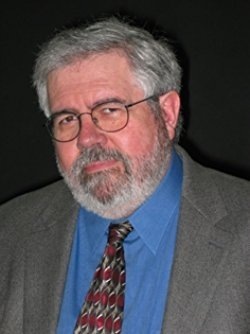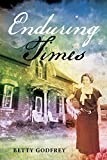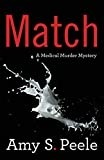Meet Pulitzer Prize-Winning Reporter and Author of The Making of Donald Trump, David Cay Johnston

Bookpleasures.com is honored to have as our guest today, formerly Pulitzer Prize-winning reporter for the New York Times, David Cay Johnston. David has won many awards over his fifty-year career and his The Making of Donald Trump is a New York Times Bestseller. He has hunted down a killer the police failed to catch, exposed LAPD abuses, caused two television stations to lose their licenses over news manipulations, and revealed Donald Trump's true net worth.
He has uncovered so many tax dodges that he has been called the "de facto chief tax enforcement officer of the United States." His books Perfectly Legal and Free Lunch were New York Times bestsellers and Perfectly Legal was honored as Book of the Year by the journalism organization Investigative Reporters and Editors.
Norm: Good day, David, and thanks for participating in our interview.
When did you become an investigative journalist and why did you chose to become one?
David: My original career goal, starting in 8th grade, was to become an LAPD street cop and make the robbery-homicide detective squad with record speed. I had applied to become a type of clerk that leads to the police academy when the first of two weekly newspapers in Santa Cruz, Calif., approached me to write for them.
I was married, a senior in high school. Within the first few months I wrote an expose (not a very good one in retrospect) on cost overruns for the new courthouse under construction in Santa Cruz, a story that got me physically thrown off the property when I went back for a follow up.
Weeks later, when I was 18, the San Jose Mercury recruited me to be a staff writer. I was 19 when the next job opened. Within a few weeks my byline was on the front page. From June 1968 to the start of 1973 I learned my craft and dug up stuff that annoyed the local powers-that-be to no end.
From the start, I was fascinated with how institutions work and how power is exercised. Quickly I learned that most of my betters just accurately repeated what officials said without doing even simple things like analyzing the school budget or recalculating obscure official numbers to imbue them with meaning, which back in the day I did mostly with long division in a notebook. I saw opportunity in acting on my own authority instead of being a simple scribe, a mere commodity in the journalism labor market.
It was competitive, it was fun and being in a union, The Newspaper Guild, it paid well enough that at age 22 even with three kids to feed I became a homeowner in Silicon Valley.
Norm: What do you consider to be your greatest success (or successes) so far in your career?
David: My books, especially my trilogy on how the economy actually works and how little-known government rules (before I exposed them) take small sums from the many and put them into the pockets of the already rich, ballooning their fortunes. Perfectly Legal (taxes), Free Lunch (subsidies) and The Fine Print (monopolies and restricting competition) all remain in print years after they came out.
Also, I’m proud that I broke the news in 1973 that ultimately resulted in a broadcast chain (Gross Telecasting) being forced out of business for news manipulations, that I exposed an American newspaper publisher as a foreign agent, exposed LAPD (and other official) political spying, as well as my 1980s work hunting down the real killer in a vicious Southern California murder, winning freedom for an innocent man.
Norm: What has been your greatest challenge (professionally) that you’ve overcome in getting to where you’re at today?
David: I’ve always insisted that I do what I want to do -- except when there is huge breaking news on deadline and everyone must pitch in. On the one hand it gave me control, freedom and power because my stories got noticed and editors knew I always had more ideas for stories than time to execute.
I used to give story ideas away to solid, but uncreative colleagues, which annoyed some editors. On the other hand, there is some arrogance in that and, from the perspective of editors, the lack of control combined with my stories infuriating the powers-that-be causes you, over the years, to wear out your welcome. It certainly is not a careerist strategy and it came at a price, but it let me be who I am.
Norm: What do you think of the quality of investigative journalism today? As a follow up, how well do you believe the media handled the vetting of Donald Trump prior to the 2016 election? Do you believe that there seems to be much more questions asked about Trump after he became President then while he was running?
David: This needs to be broken into two parts. First, there is a real revival of investigative reporting. Membership in Investigative Reporters & Editors (of which I was once president) has soared to closer to 6,000 from about 3,600 a decade ago. And this is despite the courts becoming hostile to watchdog journalism.
The Trump administration investigations by the NYTimes, WashPost, WSJ, AP, and to a lesser extent Bloomberg, NBC and Politico are stunning examples of investigative reporting.
The deeper problem is the dearth of beat reporting. There are city councils and county boards that rarely if ever see a reporter today while a half century ago, when I started out, a half reporters from competing organizations covered the Santa Cruz County Board of Supervisors.
Second, my peers utterly failed to scrub Trump. This is a shocking an historic failure and unlike the kind of scrutiny applied to, for example, Bill Clinton in 1992. I asked a colleague from my NYTimes years why no one wrote about Trump’s close and difficult to explain dealings with a major drug trafficker, which I think would have shocked many of the conservatives who voted for Trump had they known about it. My former editor asked when that was. I said in the 1980s. Too long ago to matter, he replied. The following Sunday the NYT ran a huge Page One piece on what Hillary Clinton did in the 1970s. Go figure.
My hope is that when this era is over some serious historians and others dig into what happened and why Trump was so successful in scaring off stories about his lifelong entanglements with major criminals, often in lucrative and dishonest deals that are robustly documented in official government proceedings and Trump’s own words.
Norm: What motivated you to write The Making of Donald Trump? Did you have any difficulty in having a publisher accept it for publication? Were you afraid of Donald Trump suing you, as he often does when he does not like what is written about him?
David: The day Trump announced his latest bid on June 16, 2015, (he has been talking about the presidency since 1985) I believe I was the only national journalist who said he is serious this time. I started writing pieces, many of them aimed at my fellow journalists, especially “21 Questions for Donald Trump.”
I also told my agent we needed to get a Trump book going, but the book publishers all embraced the conventional wisdom that the Trump campaign was vanity project that would soon fold. Then it became too late for traditional publishers. Suddenly out of the blue Melville House, this tiny but enterprising Brooklyn publisher, comes to us and asks if I can do a book in three weeks for what amounted to a magazine fee up front. No, I said but I did it in four. It is now in 10 languages around the world and, to my dismay, has sold at a better rate in Germany than America.
Trump called me at my home on April 27, 2016, and threatened to sue me if he didn’t like how I wrote about him. Donald’s been threatening to sue me since 1989 or so. His call was surprising because Donald knows I can’t be intimidated, knows I have run into a burning building, knows I personally hunted down a murderer. I thought the call indicated he was out of control more than usual, acting rashly. But worried he would sue, naw.
Norm: How much research went into the writing of the book and can you share some stories about people you met while researching this book?
David: The book is based on public records with almost nothing new. I had built a huge collection of Trump files over the decades. In early 2016 my friend Wayne Barrett, the first journalist to get onto Trump and who was dying, gave me his files so I have a huge collection, almost certainly the world’s largest private collection of Trump documents.
A key point of The Making of Donald Trump is that everything in it is verifiable from the more than 40 pages of source notes. That was because I didn’t want to give Trump and his surrogates any excuse to attack the book. Interestingly, Trump denounced the solid but mild Washington Post book Trump Revealed, but said nothing about mine which was full of material he hopes no one ever learns.
Norm: What was the most difficult part of writing this book?
David: Time. I had 27 writing days in which to come up with a theme, an organizational structure, to interview people, collect additional documents from recent or ongoing lawsuits, checks facts and review complicated legal documents. I employed a researcher I had hired before to get files from the LA County courthouse, files that officials insisted did not exist, but being savvy and determined Cindy Santos eventually secured them.
Norm: What were your goals and intentions in this book, and how well do you feel you achieved them?
David: My goal was to do what my peers did not due – tell the story of who Trump really is, what he has done with his life and how he is manifestly unfit to be a city councilor, much less president.
I wanted people to know about his family’s generations of criminal conduct, his own cruelty to many people including a sickly infant whose life he put in jeopardy over money and to show from his own mouth the utter contempt he holds for Christians while falsely claiming to be a believer to win their support.
Would that many more people bought the book before the election and that the many politics reporters I know and called would have read the book before the election.
I failed to get the American press and broadcast news organizations to follow through on stories I handed up to them on a platter. The Making of Donald Trump got no mention on the 6:30 PM network news shows in America, yet the book was featured on the network news of many foreign countries from Australia to Canada to Europe and India.
A dozen foreign news crews traveled in the last year to my home to interview me and others flew me to Manhattan. Yet no major American news organization has come to Rochester to interview me. What does that tell you about the state of journalism?
Norm: Do you believe Donald Trump will last four years as President? If not, what will take him down?
David: Just as I consistently said he might be nominated and might get the office, I have also said I don’t believe he could last a year in office. He may endure longer than that because, amazingly, many Republicans think Russia is our ally and accept Trump’s claims that there is nothing there about his Russian entanglements even when he changes his story again and again and again and… Impeachment, 25th Amendment removal by the Vice President and Cabinet and ill health or death could all shorten his term (Trump doesn’t exercise, eats a terrible diet and videos document his lack of stamina).
Norm: In your book, you state that “As the many episodes recounted in these pages have shown, Trump is remarkably agile at doing as he chooses and getting away with it.” With this in mind, do you believe Donald Trump will last four years as President? If not, what will take him down?
David: A thorough, no holds barred investigation of Trump’s finances will show misconduct that only foolish true believers could accept. That is why he is desperate to shut down the special prosecutor or discredit the special prosecutor’s work. Trump’s own conduct, once in the light of day, should bring him down.
Norm: Do you trust Robert Mueller's investigation and where do you think it will all end up?
David: Robert Mueller has a distinguished career as a combat officer (and hero), a prosecutor, a judge and as the second longest serving FBI director. He knows crime and he knows counterintelligence. He is building the best possible team of prosecutors and he will know who the most dedicated the honorable FBI agents are to bring into his team. All Americans should trust him and his work, when it becomes public, will be thorough and fair.
Norm: You mention at the end of your book that “Trump's success with voters tells an important story about the deep trouble America is in.” Would you care to elaborate and do you have any suggestions as to how to improve the situation?
David: Thousands of American schools no longer teach civics, not really, though many play at it. Our colleges and universities are rife with students who have no idea what is in our Constitution or its brilliant system of co-equal branches with checks and balances on the abuse of power. In that they are like Trump whose own words show he has no idea what is in our Constitution, an issue I tried to get politics reporters to raise on the campaign trail. Most Americans could not pass the exam given foreigners seeking to become citizens.
For four decades, an increasingly well-financed campaign to paint honest journalists as liars has twisted our politics and promoted the politics of anger, self-pity and fear. Our democracy is in deep trouble and has been for some time. Trump is a symptom, not the disease.
Norm: Where can our readers find out more about you and The Making of Donald Trump?
David: I now run as a volunteer a nonprofit, non-advertising news service that covers what our federal government does, rather than what politicians say. Its free and so are email alerts from DCReport.org.
There is a pretty good Wikipedia article [that others created about me, not perfect but not bad, either). When I write, I post a notice on Twitter @DavidCayJ and on my Facebook page, davidcay.
Norm: What is next for David Cay Johnston?
David: In January you can read The Trump Factor: How He’s Making Things Worse for Most of Us (Simon & Schuster). It’s already been sold for some foreign language editions. After that I hope to go back to finishing The Prosperity Tax, which will have both a narrative explaining why we need to junk our century-old income tax system for one aligned with the post-industrial 21st Century economy. It will also have statutory language for lawyers and wonks to dig into.
Norm: As this interview comes to an end, what question do you wish that someone would ask about your book, but nobody has?
David: If you only had time to read one chapter in The Making of Donald Trump which would it be? Answer: Showing Mercy, the chapter about Trump and the major drug trafficker.
Norm: Thanks once again and good luck with all of your future endeavors
Follow Here To Listen to An Interview With David Cay Johnston
"
Articles from Norm Goldman
View blog
Author: Betty GodfreyPublisher: Bookbaby · ISBN: 978-1098300494 · The opening page of Betty Godfrey ...

In Match: A Medical Murder Mystery, Amy S. Peele crafts a chilling intricate mystery around the inv ...
Bookpleasures.com is pleased to have as our guest Dr. Jaya Viswanathan, who is a captivating blend o ...
You may be interested in these jobs
-
Gestionnaire En Formation Manager Trainee
Found in: Betterteam US S2 T2 - 1 week ago
Hertz Québec, Canada Full timeSalaire: 18.00 par heure · Avantages et Bénéfices: · Non seulement vous faites partie d'une organisation où vous stimulez votre potentiel, alimentez votre passion Voici quelques avantages et réductions: · 40 % de réduction sur toute location standard Hertz · Réduction sur les ...
-
Director, Legal, Personal Banking
Found in: beBee S2 CA - 2 weeks ago
EQ Bank | Equitable Bank Toronto, Canada TEMPORARYJoin a Challenger · Being a traditional bank just isn't our thing. We are big believers in innovating the banking experience because we believe Canadians deserve better options, and we challenge ourselves and our teams to creatively transform what's possible in banking. Our team ...
-
bookkeeper
Found in: Talent CA 2 C2 - 3 days ago
SKYWAY DRIVING SCHOOL Edmonton, CanadaEducation: · Expérience: · Education · Secondary (high) school graduation certificate · Tasks · Calculate fixed assets and depreciation · Keep financial records and establish, maintain and balance various accounts using manual and computerized bookkeeping systems · Maintain gen ...



Comments